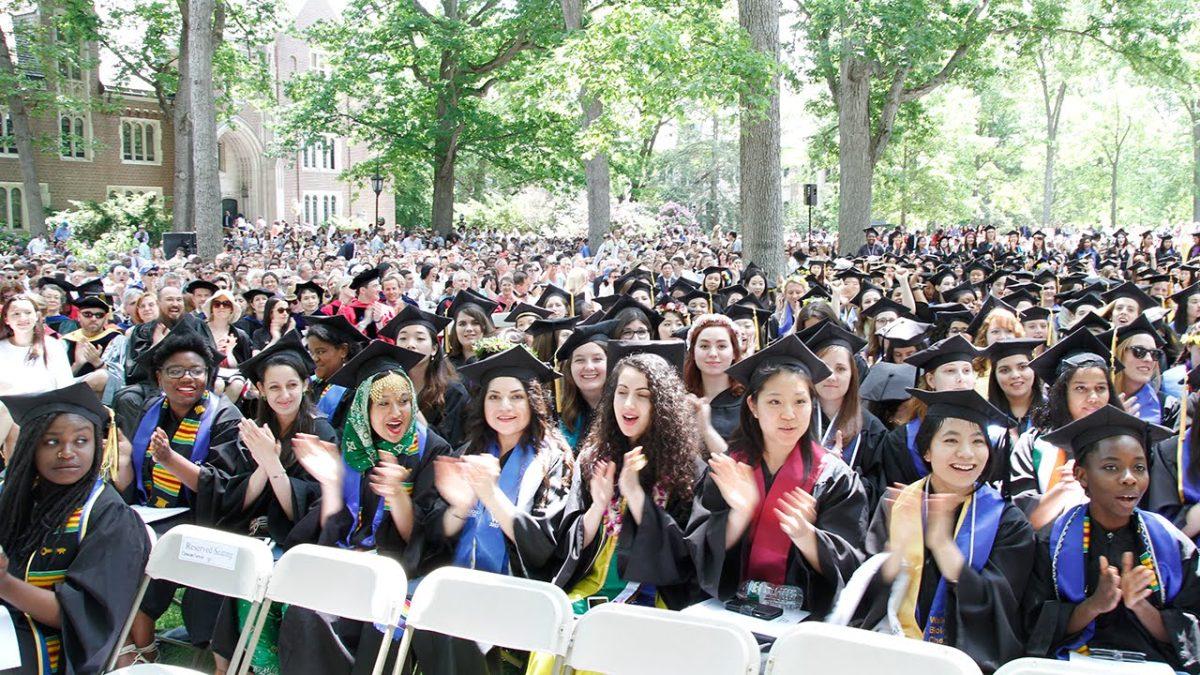As students from Wellesley, MIT, Tufts, Harvard, and so forth assert in graduation speeches that they and their peers will go forth to be leaders in their respective fields, I pause. In those lauding statements lies the assumption that graduating from an Ivy, or any another prestigious college assures one a future of success and influence. That is, a degree is your key to a realm of leadership, notability and honor. These sentiments are neither unfounded nor uninspired, but they fall short of their potential. Degrees aren’t promises of greatness, but moral documents that compel its grantee to do good. They are tools to access opportunities and they carry a responsibility to the betterment of our communities. However, to do good with one’s degree is neither a new nor precise charge, and it is a conversation with which we all should actively engage.
For me, this conversation started in 2012, during the fall of my senior year of high school. It began with a question: Why does one pursue or need a college education? When asked, I often recounted a story of a distant cousin of mine. I met my cousin once when I was younger. Under a pomegranate tree, we discussed the value of education and my freedom to pursue it. I don’t share the societal pressures she endured to give breath to stereotypes, but to give weight to the privilege of a college education. Her dictated future lied either in homemaking or teaching, though her passions compelled her towards a math and physics degree. Nearly ten years later, she is not the physicist she aspired to be.
I have always known of my privileges as a daughter of immigrants who refused to place shutters over my eyes. As I got older, my acknowledgment of those blinding blessings grew more sincere as I met people whose lived experiences that contrasted mine. As I experience Wellesley, I have unlearned as much as I have learned. For example, privilege is not stagnant but fluid and changing. Originally, my decision to pursue a college education was nestled in the rationale that I had the opportunity to do so and by better educating myself, I could somehow make those opportunities available to others. Now, I am trying to figure out the details of that “somehow.”
Six months from graduation, many of my peers and I wonder about the good we can do with our degrees. Do we jumpstart careers of service? Seek a specialized education? Yet, “good” is a vague term. Given the strength of marginalization in our communities, “good” may now mean advocating for minorities and underrepresented peoples in all realms of life. The current validation of hate, polarization of political spectrum and division of this union have all charged us with the task of using our degree for more than the catalyst of our careers. While we all have the choice to ignore this calling for various reasons we need not share, as a community we need to think about what our college motto and value system mean to us. Why did we spend thousands of dollars specifically at this institution of higher learning?
Wellesley is a self-selecting environment. By enrolling at this institution, we accepted the value to serve as the norm of our work and that individuals and women embody potential and provide value to the world. Through interdisciplinary thought forged through the liberal arts, Wellesley students discover uncharted ways to leadership. Our degrees are a collective commitment to making a difference to the diversity of this world. Yet, this commitment asks us also to go beyond our comforts, specifically now. This nation’s elected politicians hark back in nostalgia to less-complicated and perhaps less-diverse. As Wellesley students, we are obligated to challenge the simplification of justice, misinformation and the erosion of diversity — this is the difference we can make in any field. By advocating and championing for our peers, the marginalized and silenced, we provide service. We challenge when we speak against prejudice in the laboratory, hospital classroom, open-space office or combat field. Likewise, “to do good” in the sense of social justice and pluralism does not necessitate pursuing careers in public service. Rather, as long as we are awoken to the realities of our neighbors, near or far, any career path can have profound political implications in advocating against hate or injustice.
Yet, to know how to advocate, we must also seek a diversity of thought in our classes and general education. We should not reinforce our beliefs by surrounding ourselves with our likeness, but instead, try to understand why people think “unliberally” and how their reasonings derive from their context and experiences. In pursuing a college education or starting a career, we should remain accountable to our experiences and value systems. We should also try to understand what we do not know. The first step to achieving this is to ask questions and then search for answers, but not necessarily the ones we want to hear. In this quagmire are opportunities of mutually informing dialogue.
In accepting people who disagree with us, we can defend our positions and better advocate our values in whatever field we choose. Many of us will graduate from Wellesley without understanding unconscious biases or institutionalized racism. As many of my peers have highlighted throughout the years, we avoid race in the classrooms because it is purportedly neither required nor relevant. Through this disengagement, we do not fulfill our degrees’ potential. Our Wellesley degrees are opportunities, not assurances of future great leaders or glass-ceiling breakers. We cannot minister without first trying to understand how people’s lived experiences inform their perspectives and how institutional policies — across fields and sectors — affect them.




